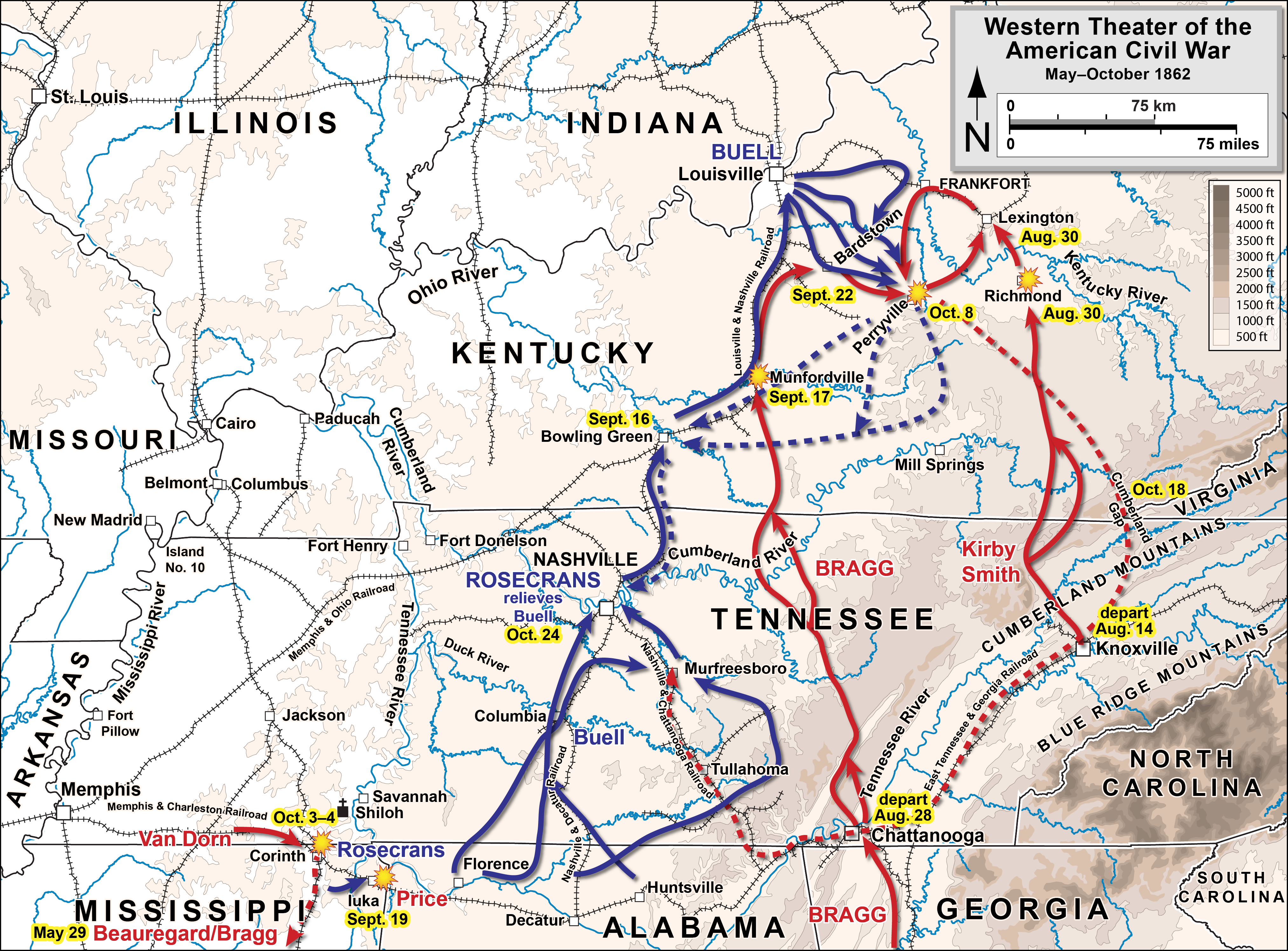At Donelson, they awoke to find the enemy had surrendered during the night. At Perryville, again the enemy seemed to have had enough, but this time were withdrawing to the far side of Chaplin River. Late in the evening, Bragg had realized that he was not engaged with the main body of Buell's Army, as he learned of the Second Corps advancing on the Lebanon Pike and the Third Corps advancing on the road from Springfield. Aware now that he was heavily outnumbered, a meeting with his generals was held late that evening where preparations were made to withdraw toward Harrodsburg and join up with the forces of Kirby Smith. Their rear guard was lightly engaged by the Federal Army on this day in 1862 as Buell decided that a cautious pursuit was prudent.
 |
| The above image courtesy of Wikipedia displays the protracted movements of Buell's Army after the Siege of Corinth. To paraphrase a modern maxim, "When you're up to your a-- in cavalry attacks, it's hard to remember that your original goal was to take Chattanooga." |
Much like Halleck's grand assault on Corinth, Buell's attack on Bragg hd collapsed under the weight of it's own organization. There would be no grand Battle for Kentucky, with the two armies engaged at full strength. The enemy would be allowed to slip away in the darkness, regroup and reinforce itself with their supplies intact. Buell's army gained access to water- not at all the outcome envisioned by the War Department.
The events of this day, the one Buell had planned for his heroic engagement, were decidedly anti-climatic and disappointing for Buell and his officers. General Thomas must surely have been second-guessing his decision to decline command and Halleck his decision to override the orders issued by the Department. All confidencce in Buell's competence was shaken.
Had Buell pursued the battle, once engaged, on the previous day with all of his available army, reinforcing McCook, driving the enemy from the field and preventing his union with Smith, he would have been lauded as a great commander. Such was not to be the case and Don Carlos Buell now had some serious explaining to do. His defense would ultimately fail to preserve his once-heralded military career.

No comments:
Post a Comment